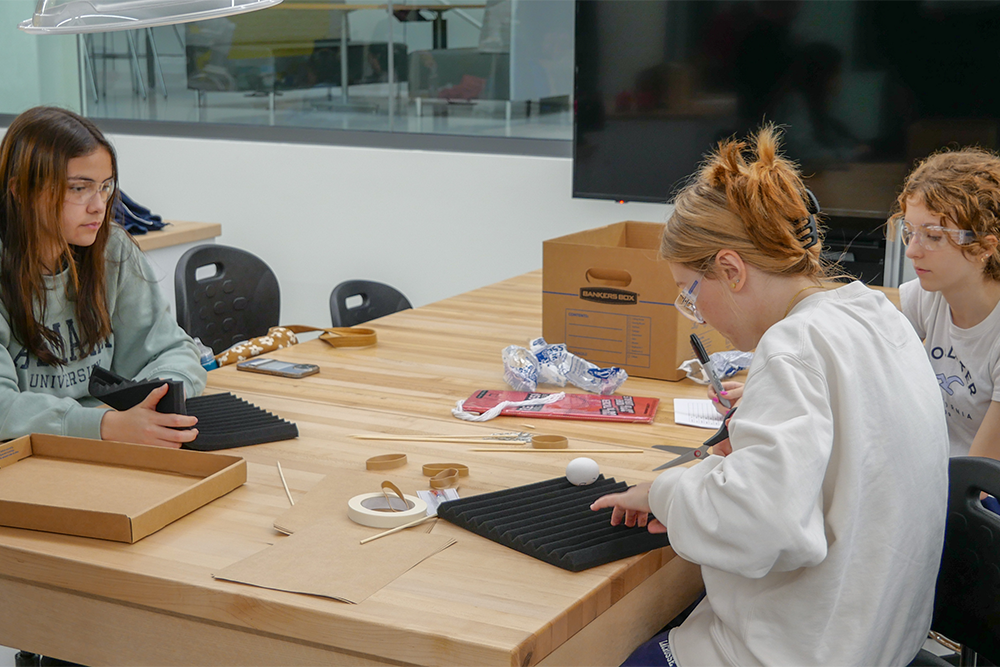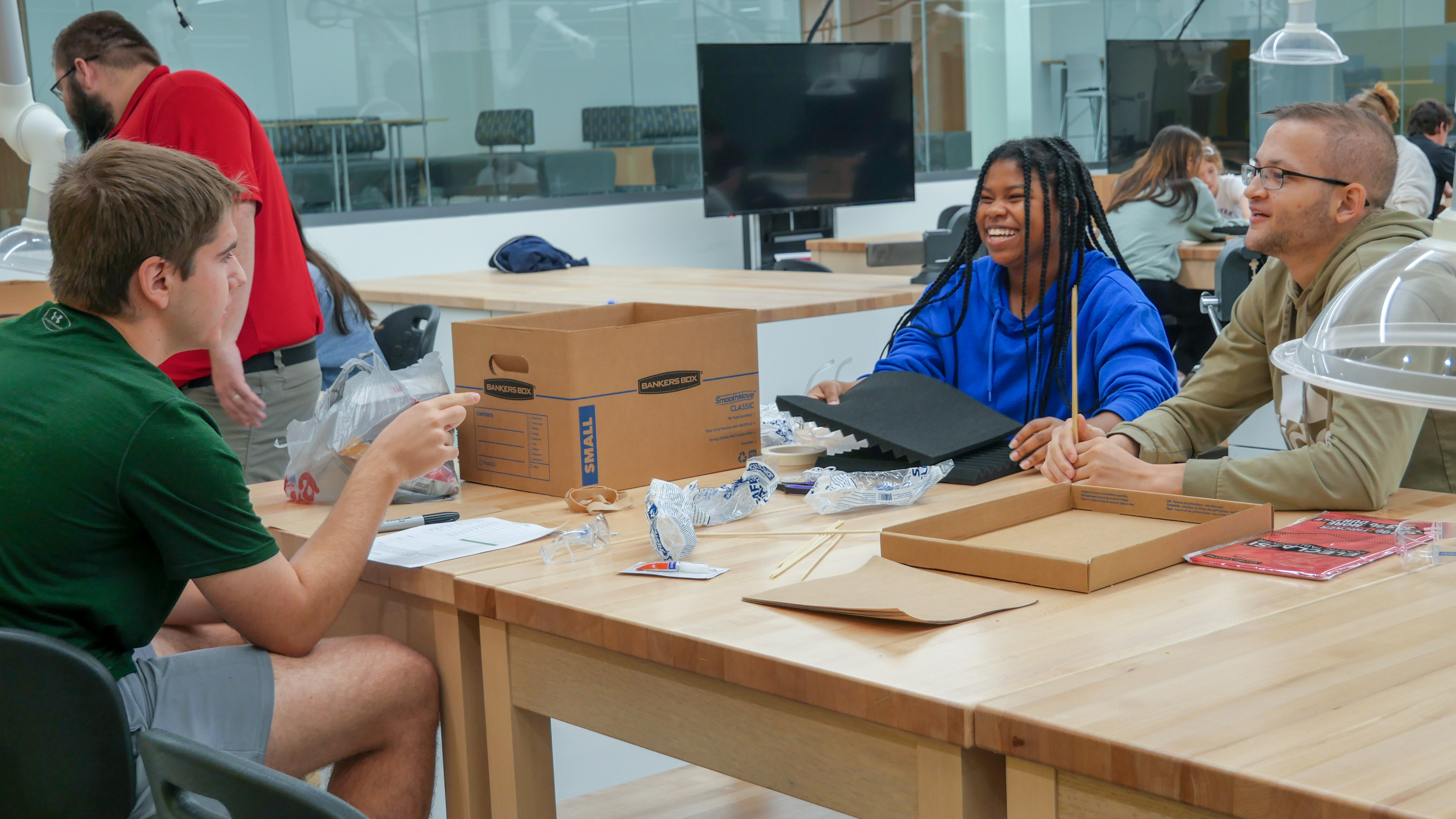
|
 |
From left: St. Mary's Ryken High School students Shannon Cain, Joni Gordon, and Beth Mancini participated in the STEM event at USMSM's Smart Building. |
|
Nineteen students from a Southern Maryland high school spent the day applying their ingenuity to a STEM challenge that combined UAS technology with more traditional engineering principles.
The group, from the engineering program at St. Mary’s Ryken High School in St. Mary’s County, traveled to the University of Maryland System at Southern Maryland (USMSM) for the activity—which resembled the classic “egg-drop” project, but with a drone-inspired twist. The event took place at USMSM’s Southern Maryland Autonomous Research and Technology (SMART) Building, an ultra-high-tech facility that opened in 2021 and features an 80’ by 60’ by 40’ indoor space known as the Open Air Lab and used for uncrewed ground and aerial vehicle testing.

From left: St. Mary's Ryken High School students Jack DeLucco, Destiny Deshields, and Nathan Shepherd
Grouped into six teams, the students followed a project management process that included the need to make careful tradeoffs between technical design and available resources. The activity was the brainchild of Joseph Copenhaver, research lab manager at the USMSM-based Maryland Autonomous Technologies Research Innovation and eXploration (MATRIX) Lab.
“The students had to construct a 'lander' for their egg by 'buying' materials from a limited pool of resources that all teams had access to, using limited ‘contract funds’ to strategically acquire materials,” explains Josh Gaus, UAS Project Engineer at the UMD UAS Research and Operations Center, which co-led the event together with the MATRIX Lab. “Many materials only had enough supply for one or two teams to make use of, for example a pre-built parachute that was much more expensive than, say, cardboard sheets or foam.”
The lander would ultimately be dropped from approximately 120 feet via a drone, which stood in for the interplanetary rocket in this space-inspired scenario.
After making their design decisions, the students constructed their devices and tested them in the Open Air Lab. The teams made final adjustments before moving to outdoor testing.
Then came the moment of truth. Using a Harris Aerial H6 drone provided by UROC and equipped with a custom-made release mechanism, the packages were deployed from 120 ft at locations on the SMART grounds selected by the student teams. The result, said Gaus, was an across-the-board success.
“All packages were deployed, with none experiencing incidents of egg scrambling,” he said.
St Mary's Ryken engineering and math teacher Jonathan Smith, who accompanied the students, said the young engineers had both honed their skiills and come away with fresh inspiration.
"Watching St. Mary's Ryken junior and senior engineering students work alongside professional engineers at USMSM's cutting-edge SMART building is a testament to the power of hands-on learning and mentorship," he said. "These experiences not only build technical skills, but also inspire a passion for innovation and problem-solving that will guide our students' future pursuits."
Located in close proximity to each other within the Southern Maryland Innovation District in California, Maryland, the MATRIX Lab and UROC are frequent collaborators in research and educational outreach, with both facilities contributing to a larger mission of establishing Southern Maryland as a hub for emerging technologies, particularly in the areas of automation and unmanned aviation.
Related Articles:
New Initiatives Push Toward Safe & Reliable Autonomous Systems
Aerospace Engineering at Maryland Expanding Online Graduate Courses This Fall
MATRIX Lab Hiring Research Development Director
Mechanical engineering major urges students in STEM to create
April 13, 2023
|

